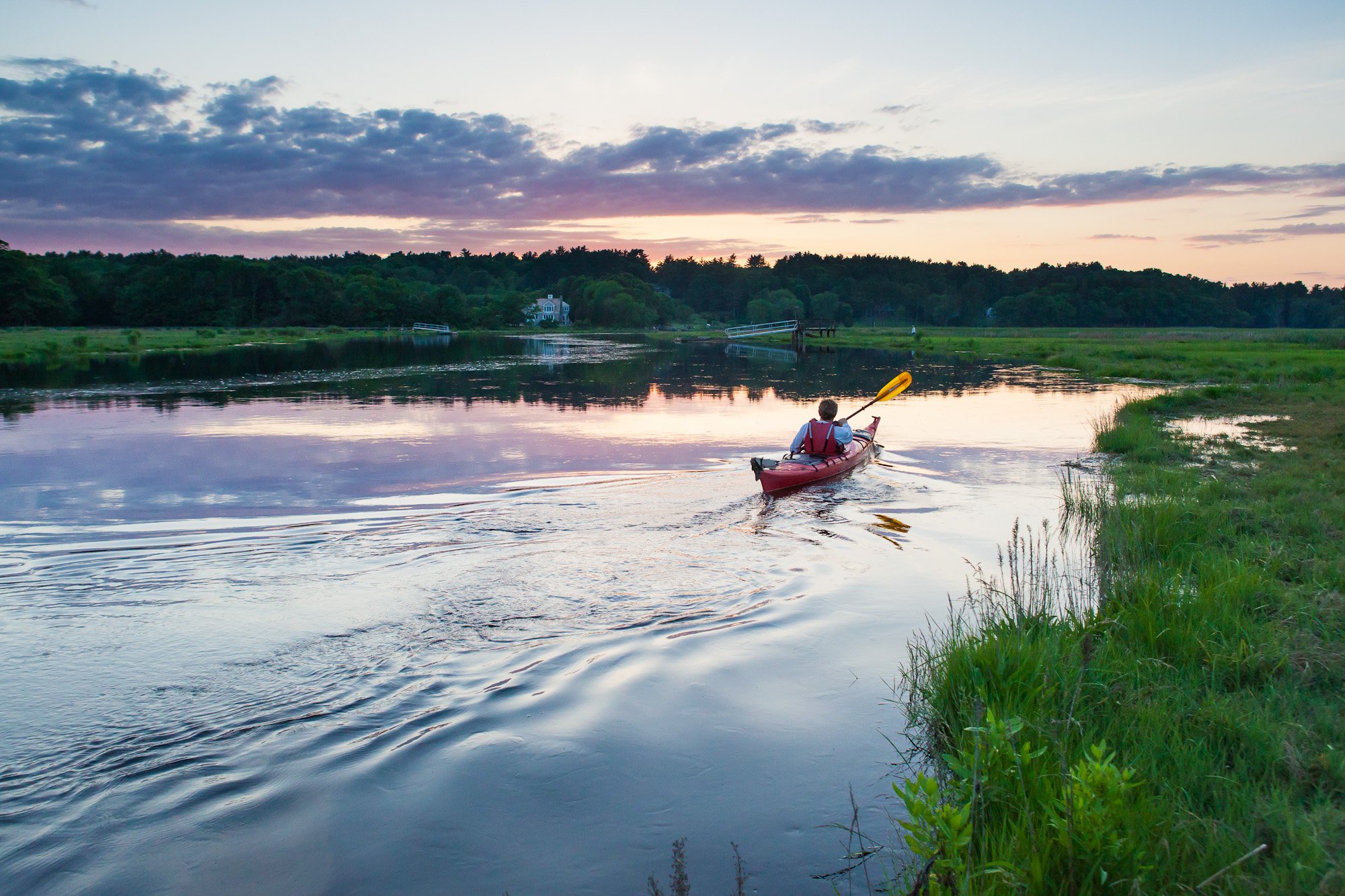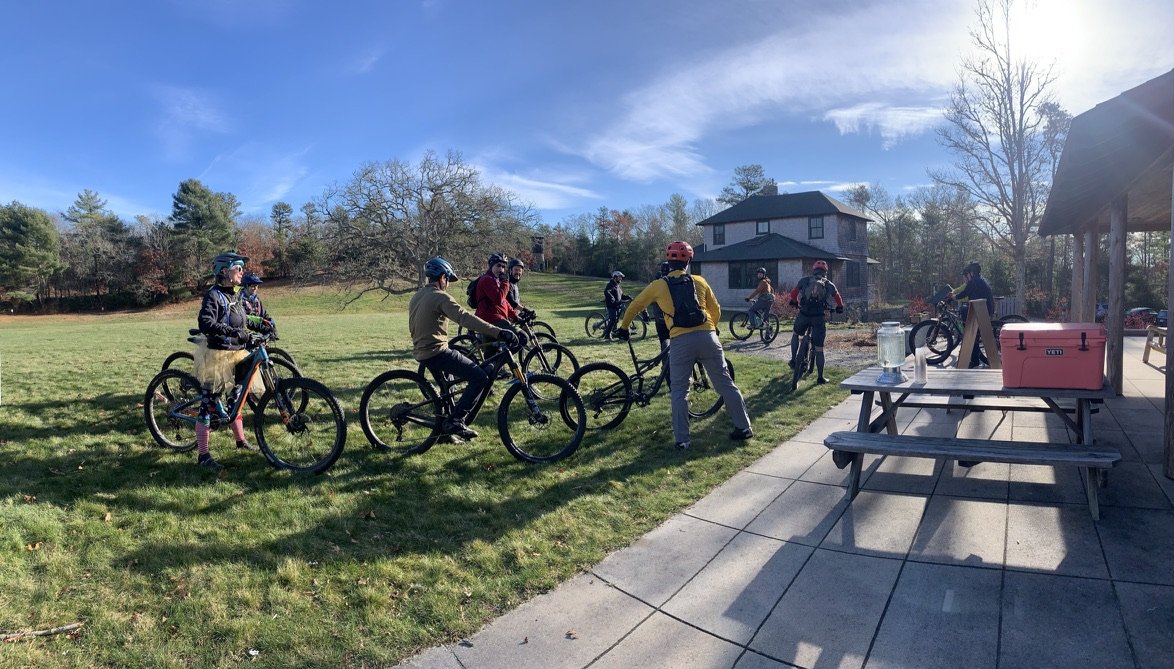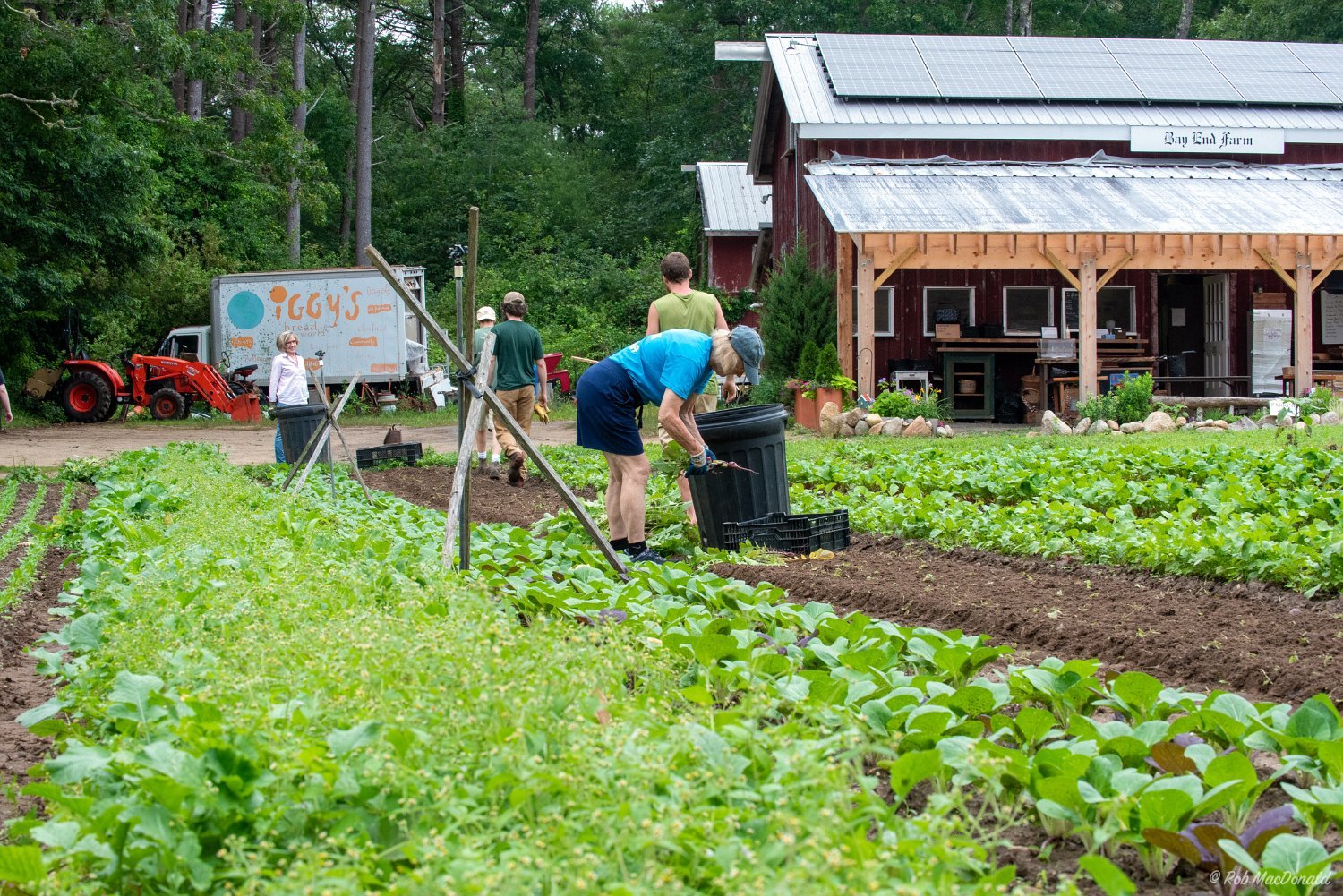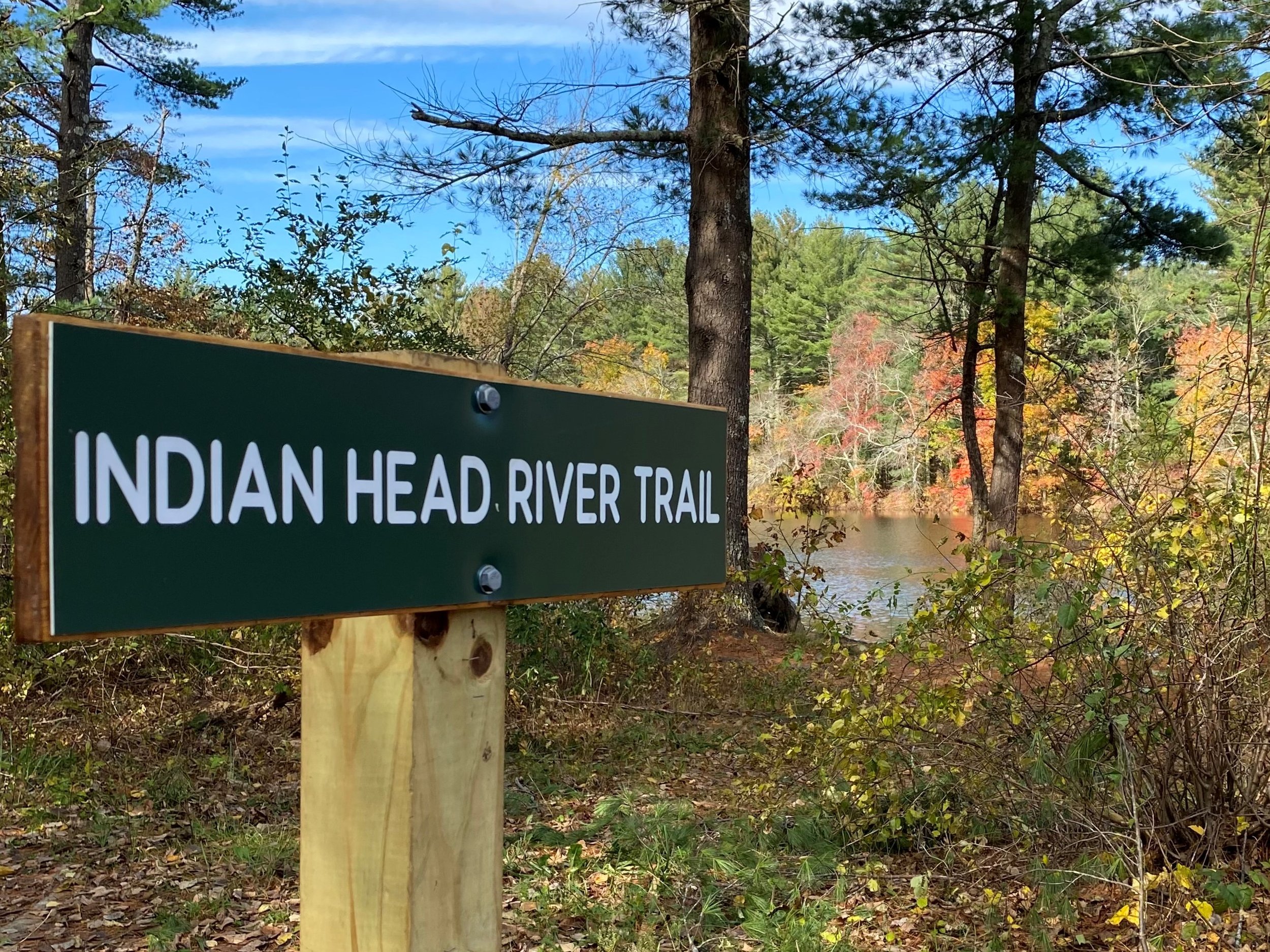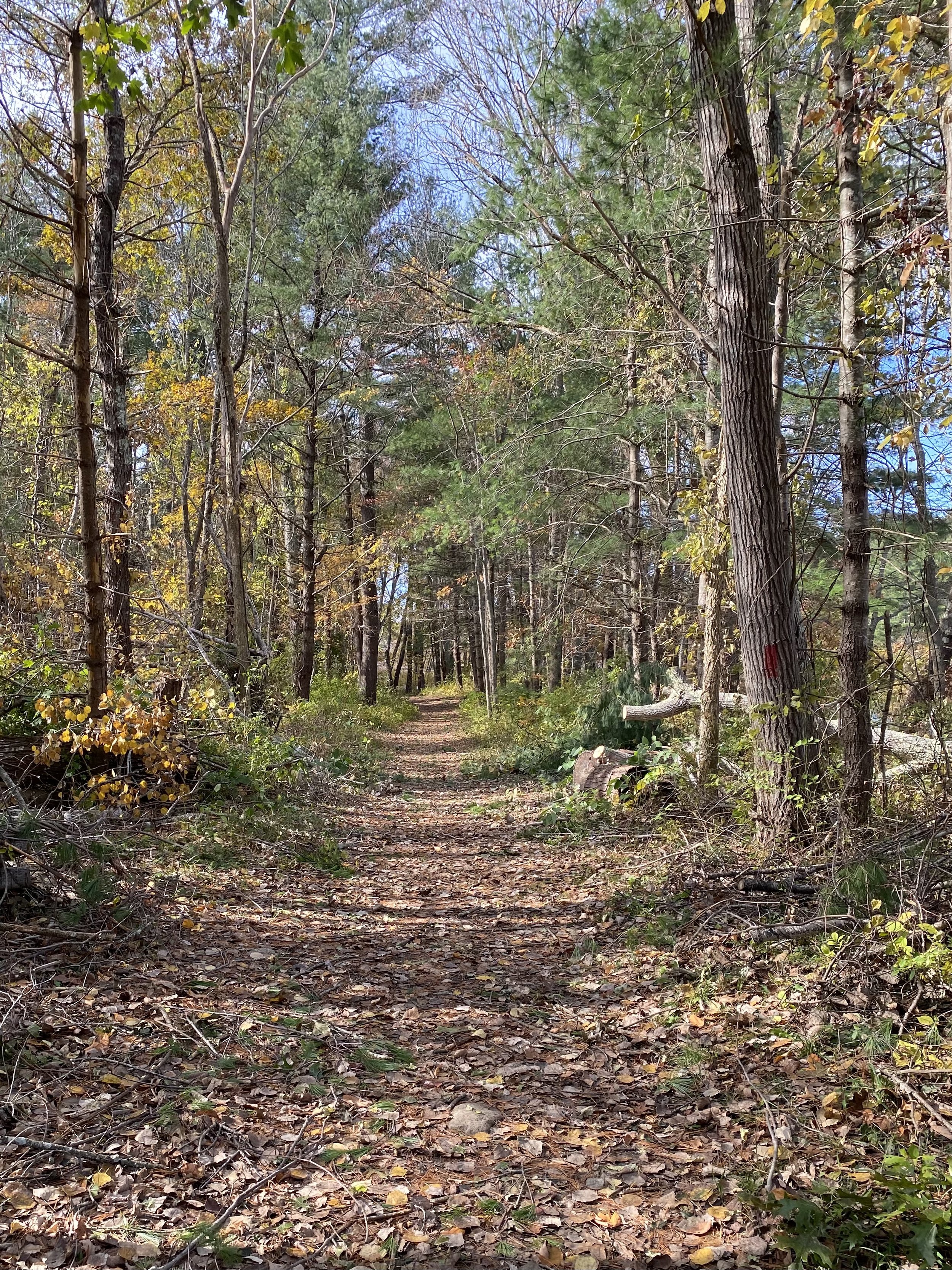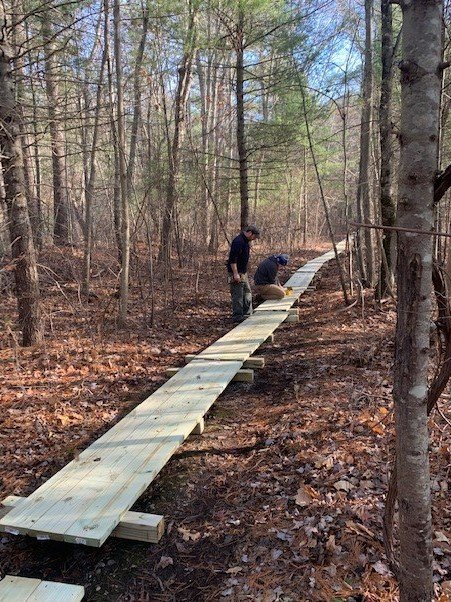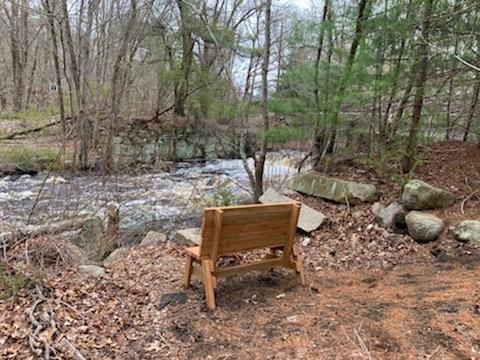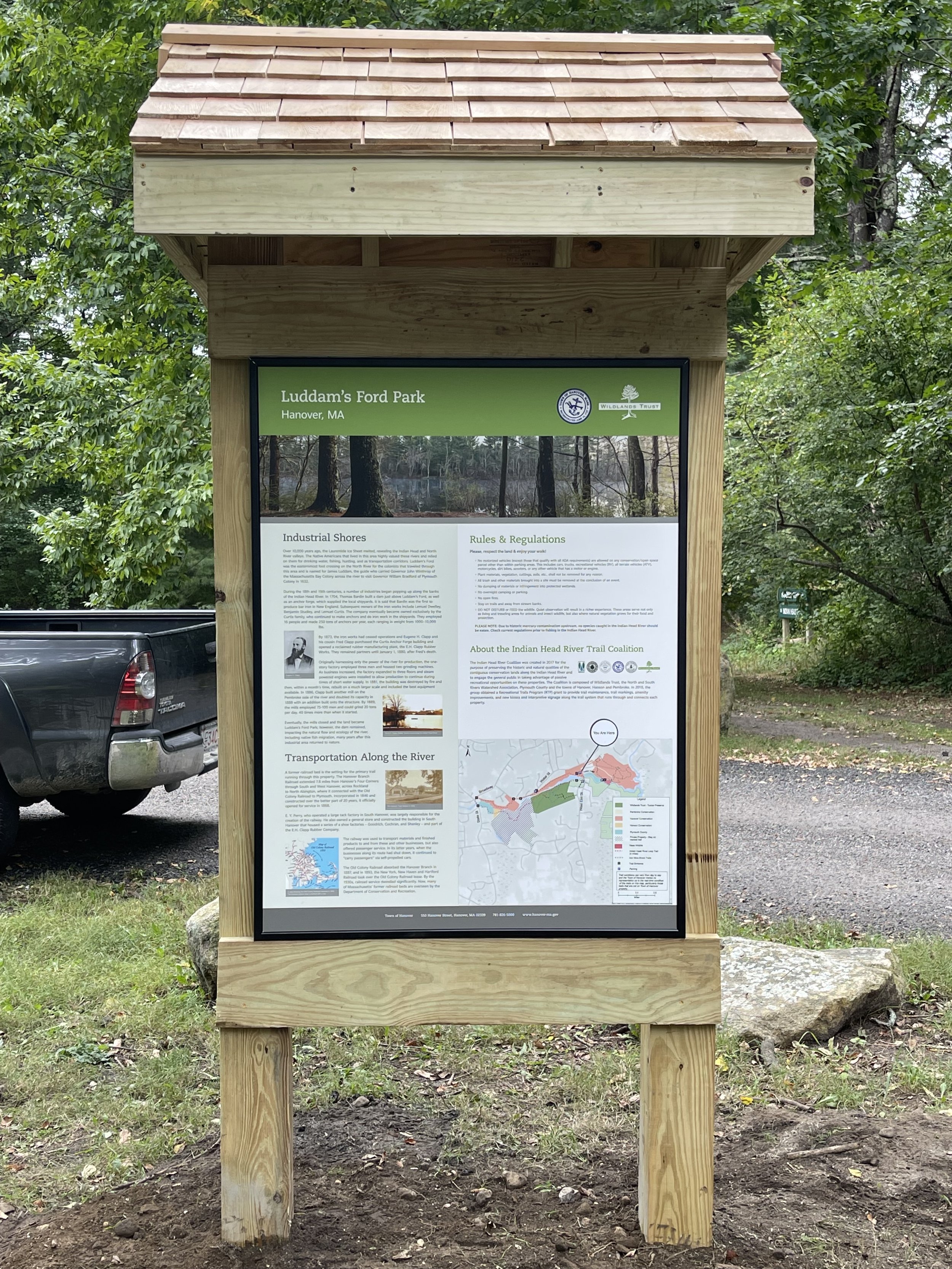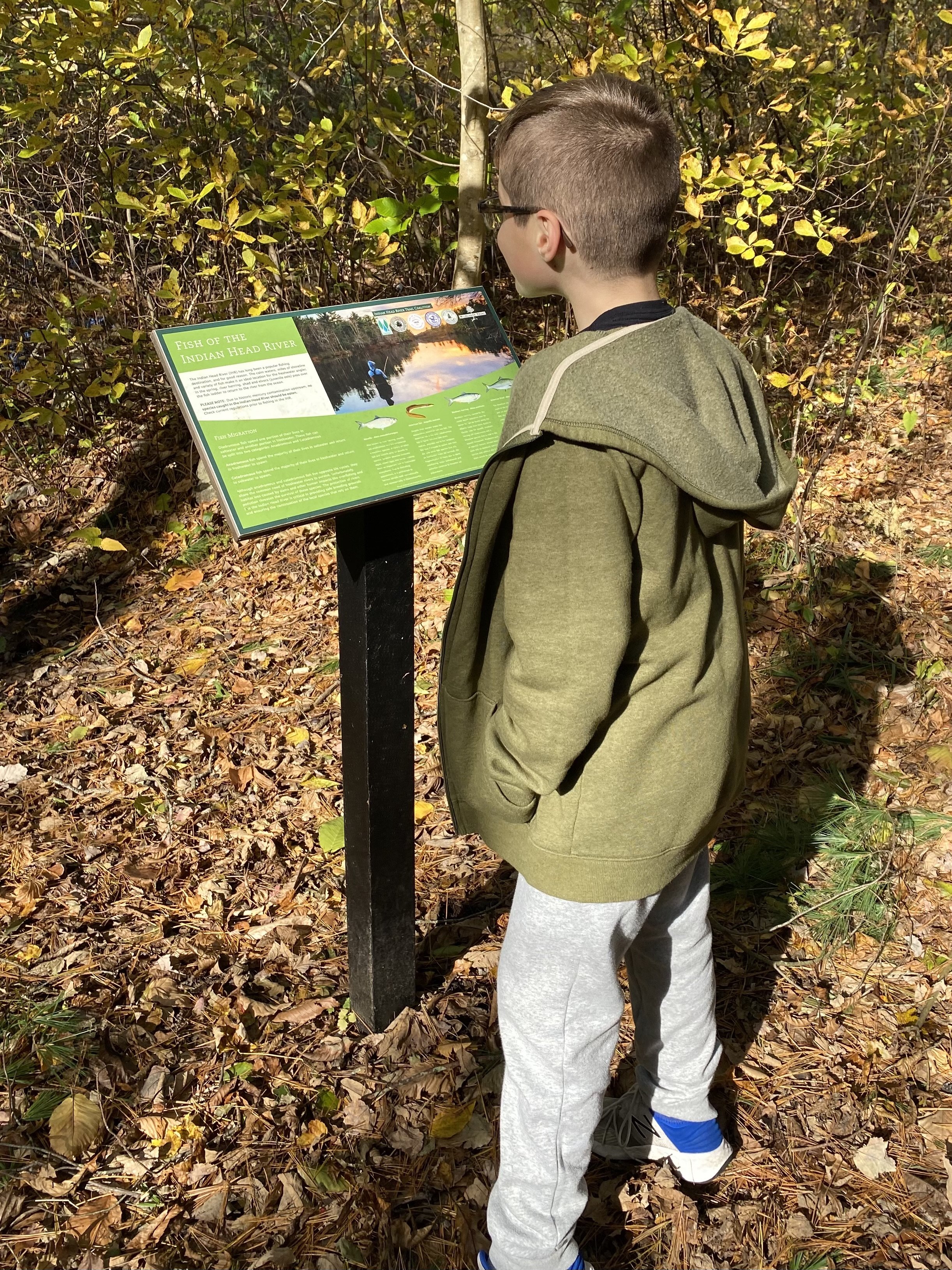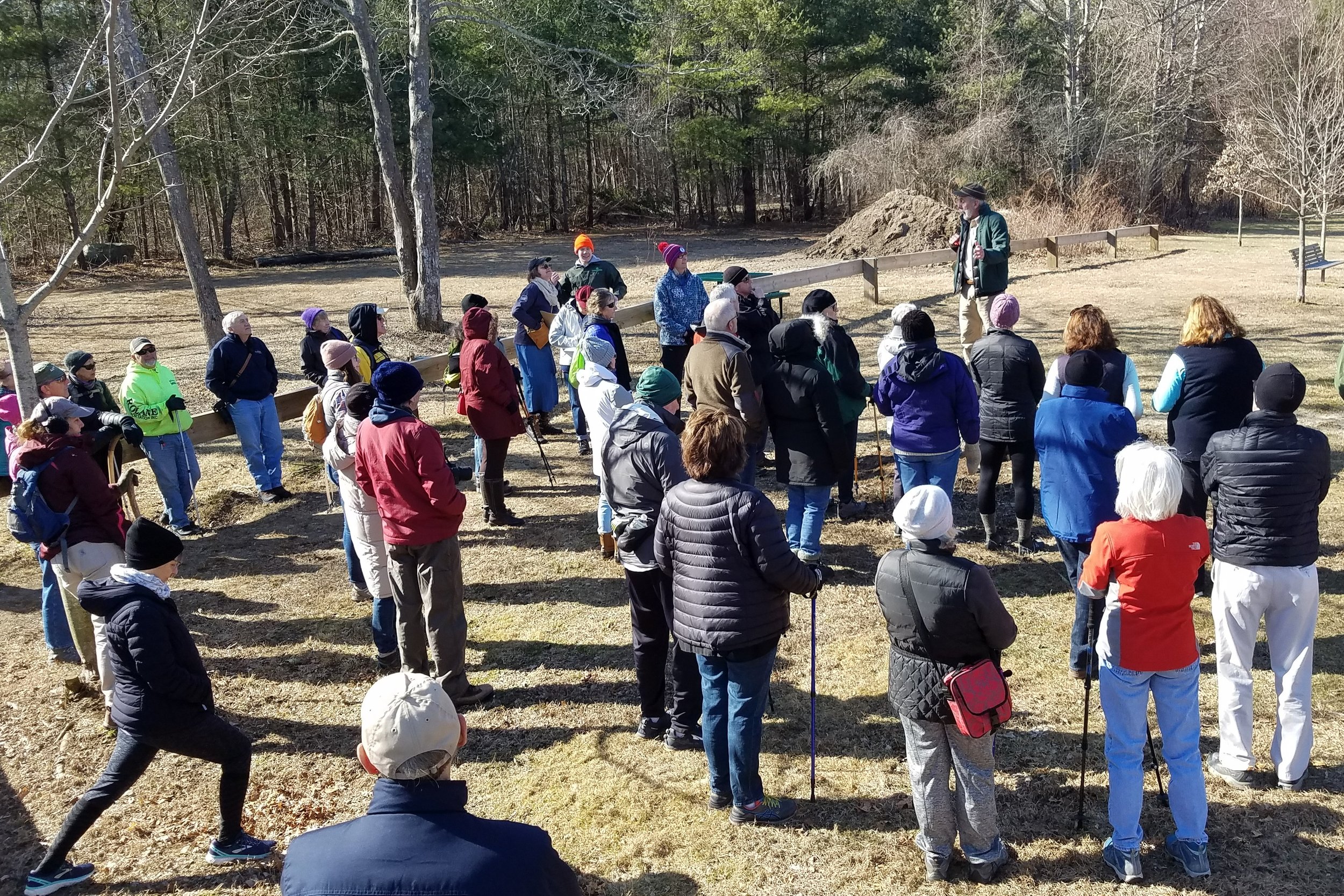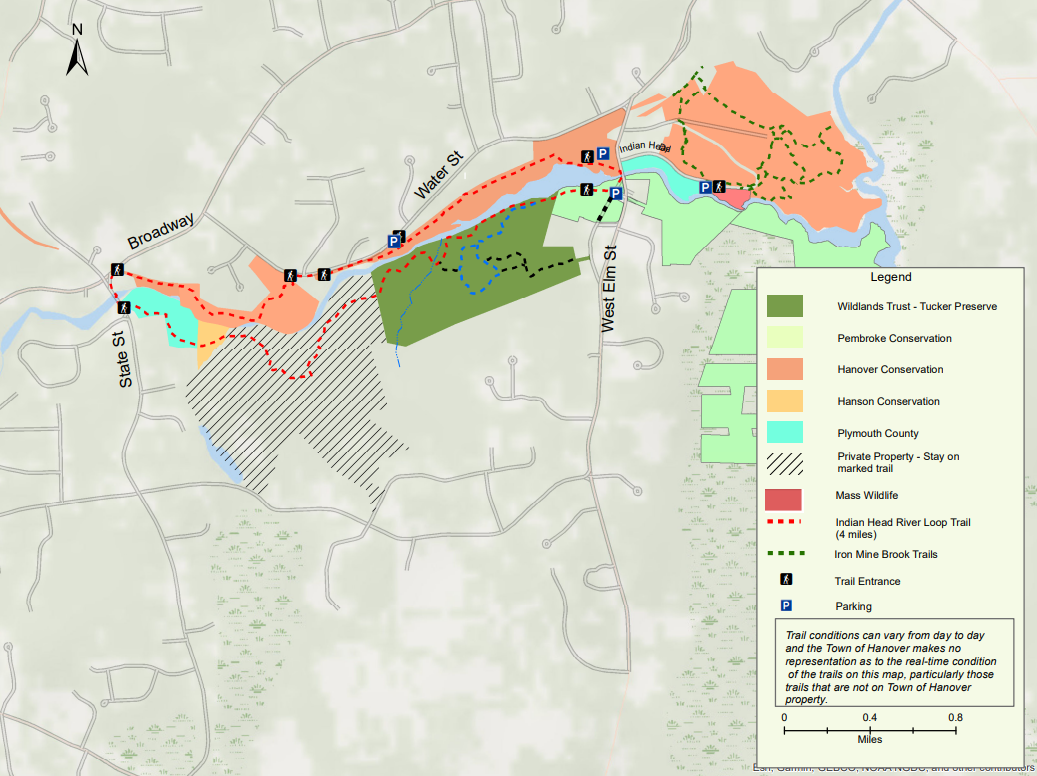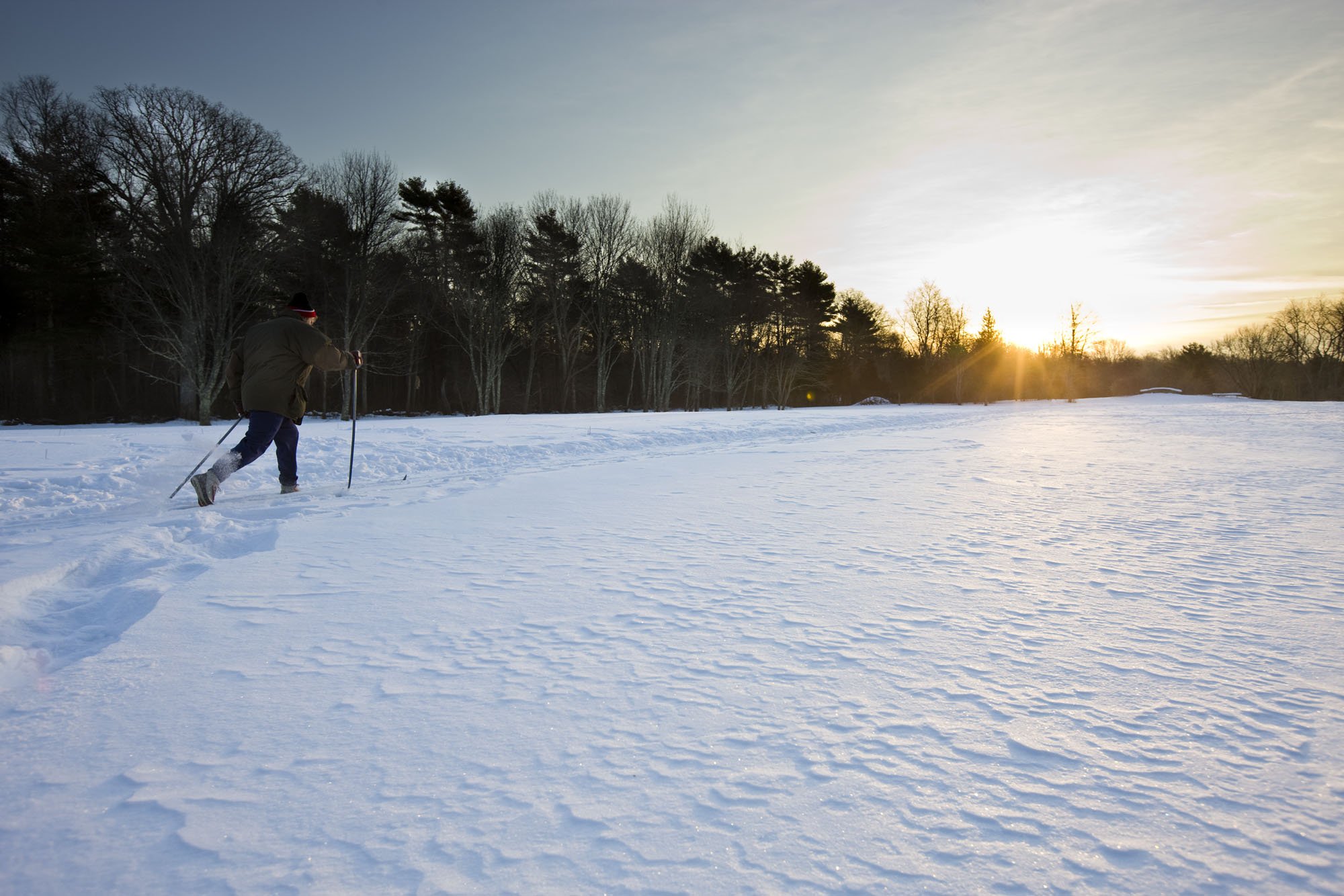Read Time: 5 min
By definition, an abutter is “a person who owns adjacent land.” When talking about conservation, this refers to anyone who owns property that shares a border with protected land. Sometimes, there are only a handful of abutters to a preserve, as may be the case in rural areas or when it is partially bordered by natural features (like the ocean or a river) or adjoining conservation lands. In other cases, particularly in more developed areas, one parcel of protected open space may be surrounded by several abutters. An example is when multiple residential properties border a preserve that lies within or behind a neighborhood. Regardless of the setting, it’s important for anyone who lives in proximity to conservation land to understand the unique benefits and responsibilities that come with being an abutter.
It’s easy to conjure a list of the benefits one enjoys when living close to protected land. Generally speaking, nearby property values are favorably impacted. Abutting landowners also benefit from access to open space and trails, and the natural landscape provides aesthetic value. Additionally, there is comfort in knowing that the environment surrounding one’s home will always remain in its natural state, without the threat of development. Wildlands is fortunate to have many positive relationships with our property abutters, who appreciate and respectfully enjoy the protected land they border.
However, not everyone understands the responsibilities that come with being a good neighbor to conservation land. Sometimes, according to Wildlands Trust’s Director of Stewardship Erik Boyer, “People don’t know who owns the woods behind their house, and they just don’t think to look into it.” This can lead to a number of challenges for organizations like Wildlands Trust, who are responsible for protecting the land. In some cases, an abutter’s lack of knowledge about the obligations of being a neighbor to a preserve can result in violations of conservation law. This is known as encroachment.
In general terms, encroachment is defined as the act of “trespassing upon the property, domain, or rights of another, especially stealthily or by gradual advance.” When property owners begin to use neighboring open space as an extension of their own yard, it is encroachment. Infringements can range from relatively minor and unintentional to significant and/or deliberate. Whatever the magnitude of the violations, they all threaten to damage natural environments and the wildlife that inhabit the area and, therefore, must be addressed. Erik points out that Wildlands Trust would much prefer to utilize our resources to maintain properties and trails for safe recreation than to address issues of encroachment from abutters.
What constitutes encroachment?
To prevent unintended violations, our stewardship team compiled a list of some of the problematic abutter behaviors that have been encountered on Wildlands’ properties, and the ways in which these encroachments threaten conservation land.
Dumping yard waste - This is one of the most common issues we see. People use neighboring woods to dump grass clippings and other yard waste, often with the misconception that, because the materials are “natural,” they don’t pose a threat to the environment. Unfortunately, the reality is that such materials are not at all conducive to native soil, and they are often treated with chemical fertilizers, insecticides, etc. that threaten both plants and animals.
Dumping trash - Man-made junk also gets thrown into the woods by homeowners or the contractors they hire. While most people (fortunately) don’t throw their household trash out the back door, it’s not uncommon to find items like scrap wood, shingles, and other unwanted items or equipment deposited on adjoining land. This creates both aesthetic and environmental issues.
Creating unauthorized trails and/or cutting trees to clear a scenic view - Cutting trees and clearing vegetation on conservation land is not allowed. Whether it serves to open up a homeowner’s view of a nearby pond or creates access from a neighborhood or private property to an existing trail system, without permission to do so, it is a violation. Wildlands welcomes volunteers to sign up and assist with trail maintenance on our properties, but reminds people that only Wildlands’ staff members are permitted to cut trees or create trails on our land.
Using motorized vehicles - ATVs, dirt bikes, snowmobiles, and other vehicles tear up trails, damage vegetation, and generate both noise and air pollution. They also pose a danger to other visitors passively recreating on the trails. Motorized recreational vehicle use is not allowed on any of Wildlands’ properties.
Building or digging beyond property lines - This is a significant and costly example of encroachment, whether it is done with the property owner’s knowledge or not. When building a shed or garage, or digging to install a driveway or pool, it is extremely important for abutting property owners to know the exact location of their property lines, and acquire appropriate permits before beginning such work. The permitting process alerts owners to applicable restrictions that may exist. Failing to obtain permits can have serious environmental consequences (especially when close to wetlands), and can become extremely costly and problematic for the abutter to resolve when violations are later discovered.
Hunting - While this is seldom an issue on our preserves, it is worth pointing out that owning property that abuts conservation land does not authorize someone to hunt on any land where it is not permitted. Doing so is unsafe for visitors and nearby residents, and it disrupts the natural habitat for wildlife.
As for what Erik most wants abutters to know, it boils down to, “Know the property lines and the rules of the adjacent conservation area, and be respectful.” Pay attention to posted regulations and don’t damage or remove informational signage. When issues arise, if necessary, conservation organizations have the law to fall back on, and pursuing litigation is an option. However, Wildlands’ stewardship team prefers to talk first, rather than jumping to a heavy-handed response. In the majority of cases, when people didn't realize their offense and wish to make amends, education and communication prove to be the best tools to resolve issues and maintain positive relationships with our neighbors.


